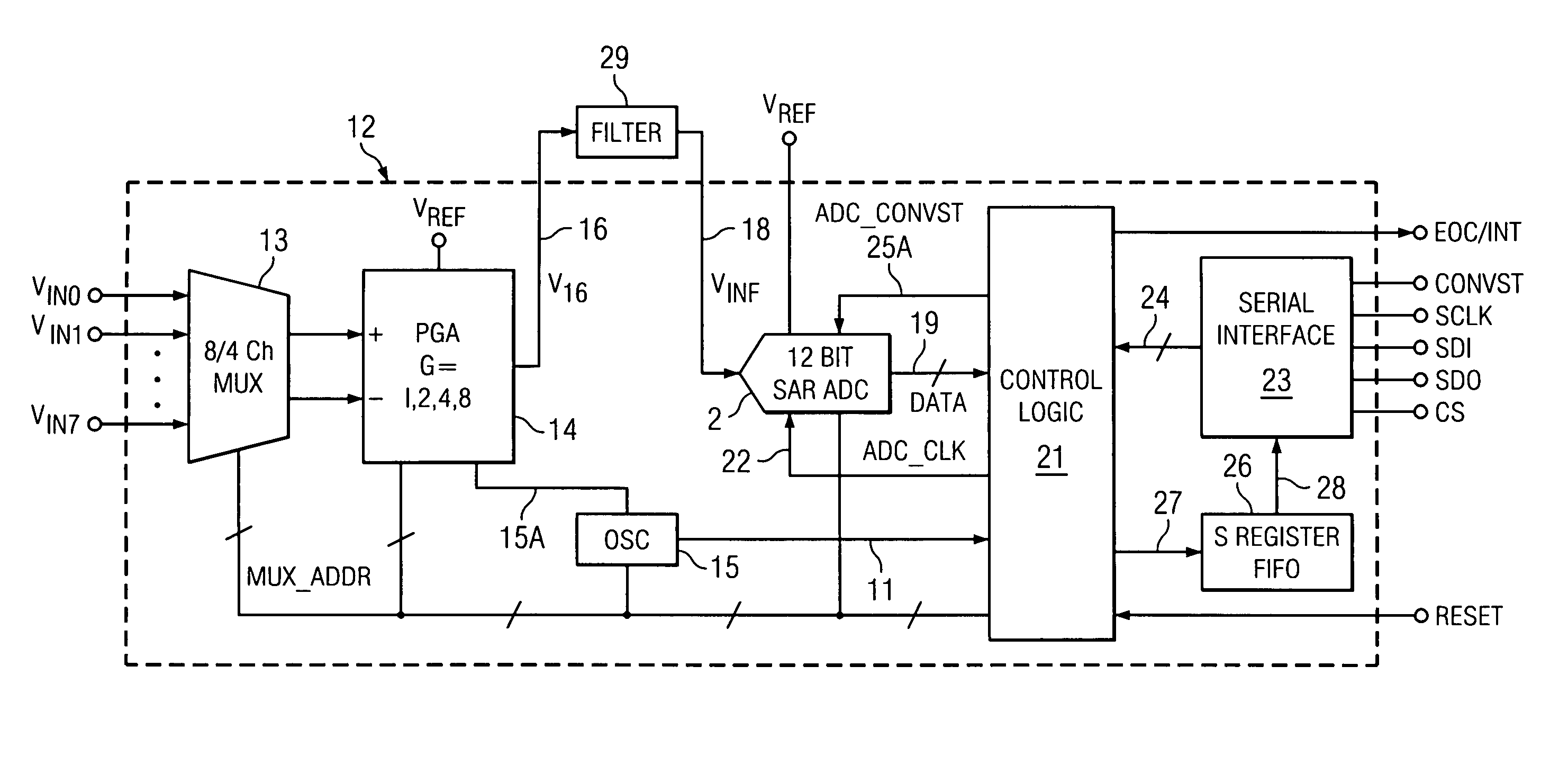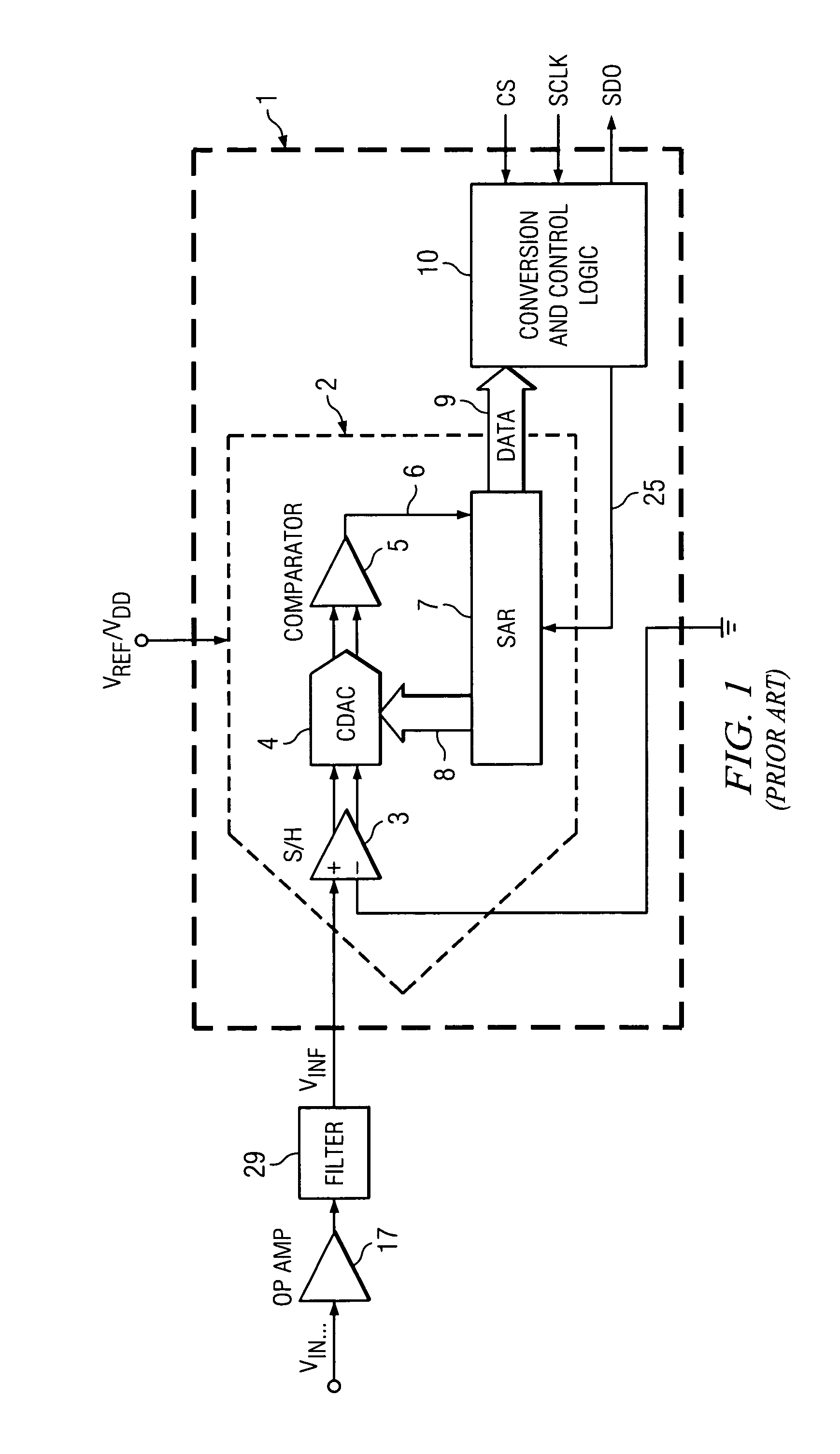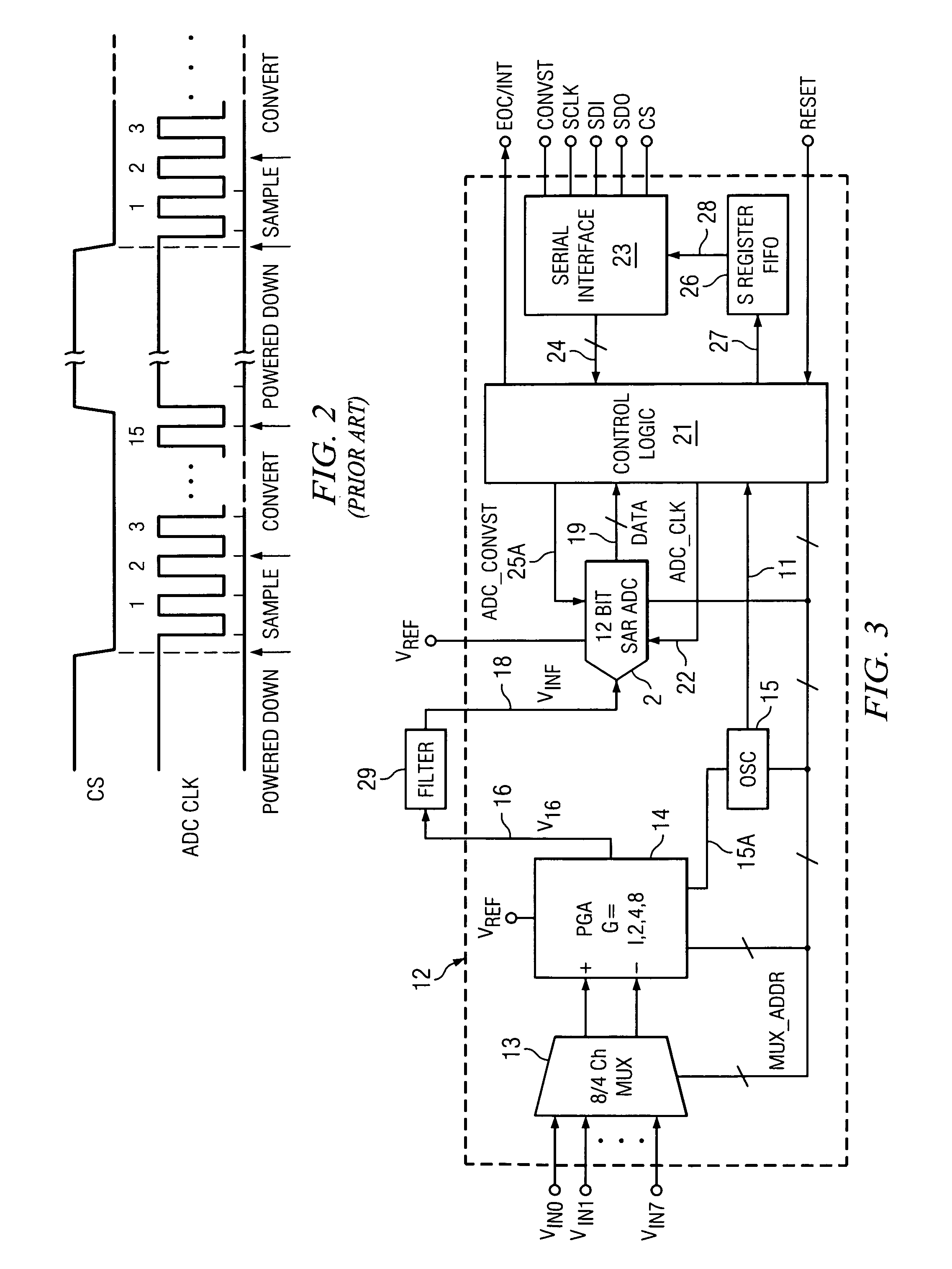Low power, high speed multi-channel data acquisition system and method
a multi-channel data acquisition and low power technology, applied in the field of multi-channel data acquisition circuitry, can solve the problems of high power consumption, multiple-channel data acquisition system design, and high power consumption, and achieve the effect of reducing power consumption
- Summary
- Abstract
- Description
- Claims
- Application Information
AI Technical Summary
Benefits of technology
Problems solved by technology
Method used
Image
Examples
Embodiment Construction
[0031]In FIG. 3, data acquisition system 12 includes a multiplexer 13 that multiplexes a number of analog input signals VIN0,1 . . . 7 to provide the input voltage VIN of a differential programmable gain amplifier (PGA) 14 or other suitable amplifier. PGA 14 produces an amplified output voltage V16 on conductor 16. PGA 14 can be a “continuous time”, chopper stabilized, or switched capacitor sampling amplifier that is clocked in response to a clock signal produced on conductor 15A by an oscillator circuit 15. PGA output voltage V16 can be coupled to the input of an external filter 29, the output signal VINF of which is coupled to the input 18 of a SAR ADC system 2 (which can be similar to SAR ADC 2 of Prior Art FIG. 1). SAR ADC system 2 may be a 12-bit ADC. SAR ADC system 2 is referenced to ground, and receives a reference voltage VREF. SAR ADC system 2 is clocked by a signal ADC_CLK on conductor 22. Multiplexer 13 multiplexes analog input channels specified by a multiplexer address ...
PUM
 Login to View More
Login to View More Abstract
Description
Claims
Application Information
 Login to View More
Login to View More - R&D
- Intellectual Property
- Life Sciences
- Materials
- Tech Scout
- Unparalleled Data Quality
- Higher Quality Content
- 60% Fewer Hallucinations
Browse by: Latest US Patents, China's latest patents, Technical Efficacy Thesaurus, Application Domain, Technology Topic, Popular Technical Reports.
© 2025 PatSnap. All rights reserved.Legal|Privacy policy|Modern Slavery Act Transparency Statement|Sitemap|About US| Contact US: help@patsnap.com



